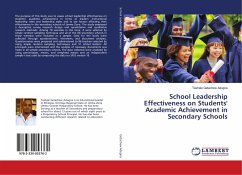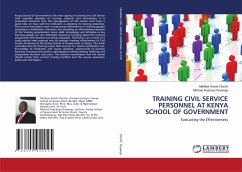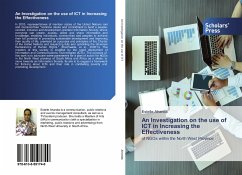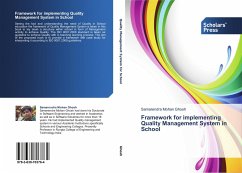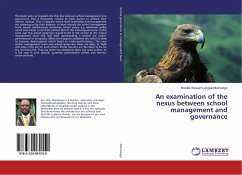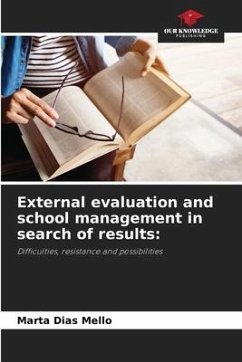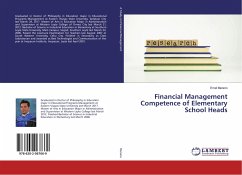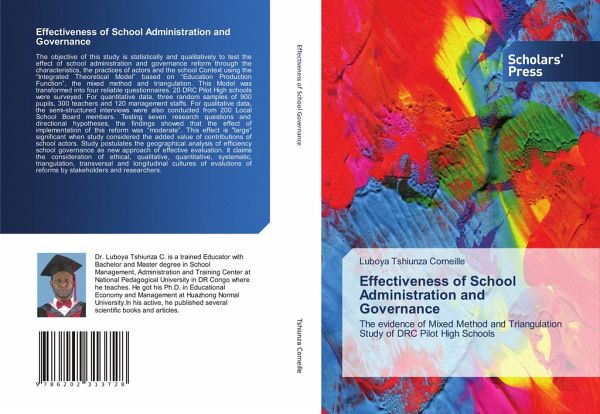
Effectiveness of School Administration and Governance
The evidence of Mixed Method and Triangulation Study of DRC Pilot High Schools
Versandkostenfrei!
Versandfertig in 6-10 Tagen
69,99 €
inkl. MwSt.

PAYBACK Punkte
35 °P sammeln!
The objective of this study is statistically and qualitatively to test the effect of school administration and governance reform through the characteristics, the practices of actors and the school Context using the "Integrated Theoretical Model" based on "Education Production Function", the mixed method and triangulation. This Model was transformed into four reliable questionnaires. 20 DRC Pilot High schools were surveyed. For quantitative data, three random samples of 900 pupils, 300 teachers and 120 management staffs. For qualitative data, the semi-structured interviews were also conducted f...
The objective of this study is statistically and qualitatively to test the effect of school administration and governance reform through the characteristics, the practices of actors and the school Context using the "Integrated Theoretical Model" based on "Education Production Function", the mixed method and triangulation. This Model was transformed into four reliable questionnaires. 20 DRC Pilot High schools were surveyed. For quantitative data, three random samples of 900 pupils, 300 teachers and 120 management staffs. For qualitative data, the semi-structured interviews were also conducted from 200 Local School Board members. Testing seven research questions and directional hypotheses, the findings showed that the effect of implementation of this reform was "moderate". This effect is "large" significant when study considered the added value of contributions of school actors. Study postulates the geographical analysis of efficiency school governance as new approach of effective evaluation. It claims the consideration of ethical, qualitative, quantitative, systematic, triangulation, transversal and longitudinal cultures of evalutions of reforms by stakeholders and researchers.



